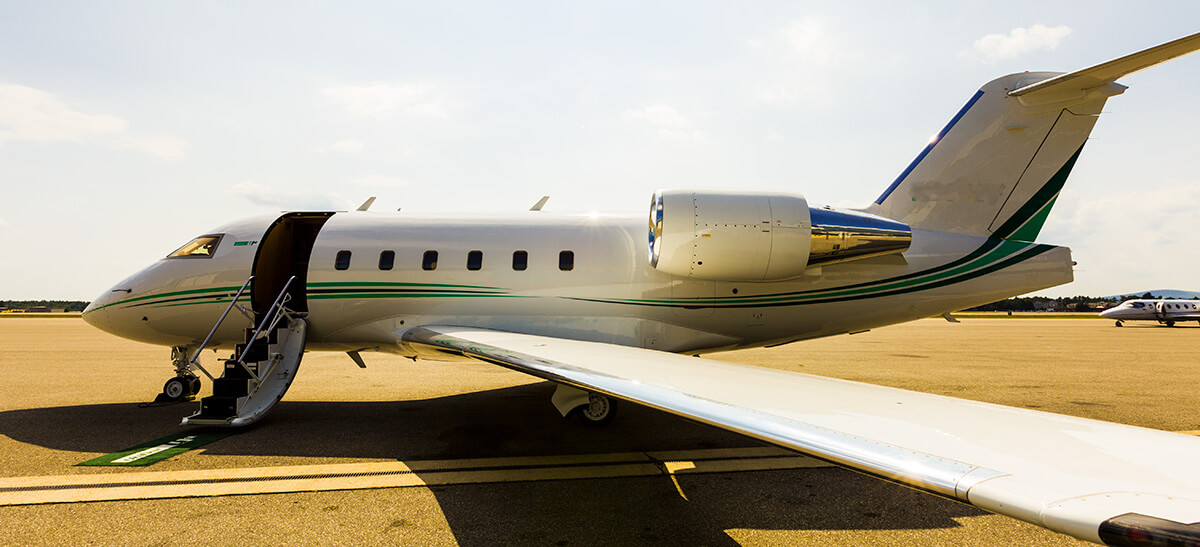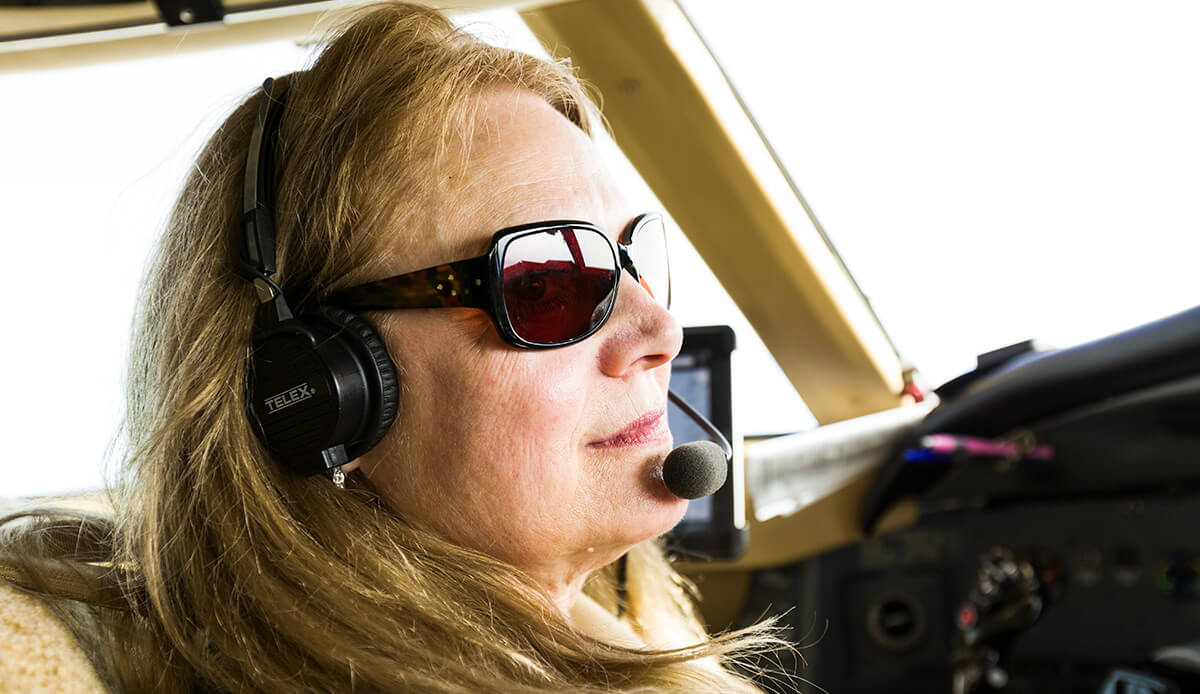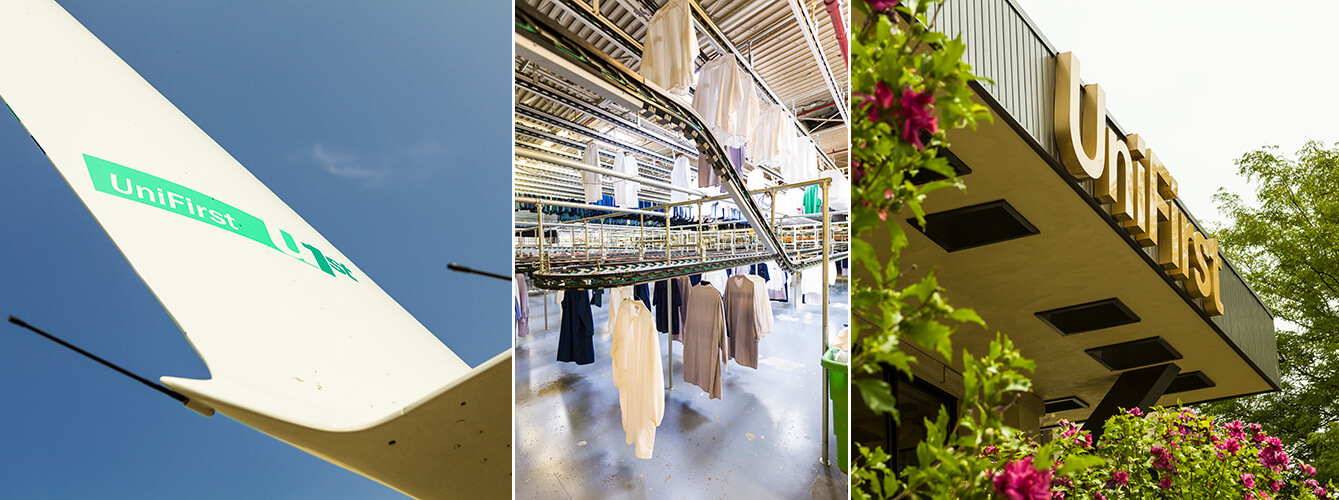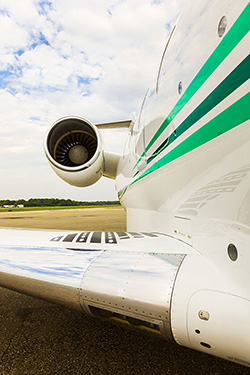
Buying an airplane during an economic downturn pays off for UniFirst.
Nov. 12, 2012

Starting a new corporate flight program and building an internal flight department during an economic downturn may seem counterintuitive to sound business practices. However, for UniFirst Corporation, a fast-growing leader in the uniform and textile services industry, it was a savvy business move. Not only did buying an airplane and developing its own flight team help UniFirst become more nimble in managing its overall business, it also helped the company contain costs, improve travel efficiency, boost its brand and secure larger customer accounts.
UniFirst’s core business is the delivery of uniform rental and service programs. Its customers are provided with all their employees’ work clothing and hygienic laundering, along with garment maintenance, repairs and replacements, for one low, per-wearer weekly fee.
The company, which is headquartered in the Boston suburb of Wilmington, MA, operates more than 220 facilities spread throughout North America. Previously UniFirst had been using fractional aircraft ownership to meet its various executive travel needs. However, when airplane prices dropped a few years ago as a result of the struggling economy, UniFirst President and CEO Ronald Croatti decided it was an opportune time to look into purchasing a corporate aircraft outright in order to take greater control of the company’s executive-level travel requirements.
“Business aviation travel is essential for me, as well as for many of our employees. We’re very involved with all aspects of our coast-to-coast operations throughout North America, and I personally make it a point to visit as many of our locations and customers as possible throughout the year,” Croatti said. “When we were involved in fractional ownership, costs had been continually increasing to the point where the full ownership option became more attractive. That fact, coupled with the increased travel flexibility ownership provides, made the decision to buy our own plane an easy one.”

The solution for UniFirst was the purchase of a previously owned Challenger CL601-3A, and the creation of a new internal flight department, built from the ground up, that includes Katha House, chief pilot; Matthew Walden, captain/safety officer; David MacEwen, director of maintenance; and two administrators. UniFirst’s airplane and flight department are currently based at Manchester-Boston Regional Airport (MHT), located in southern New Hampshire (30 minutes from the company’s corporate office).
Croatti said UniFirst’s plane is particularly valuable during the company’s annual “budget season” (July through October). It’s during this period when he and other financial executives meet with virtually every UniFirst location management team in the U.S. and Canada to review business plans for the new fiscal year. “To accomplish this kind of face-to-face interaction at so many sites simply cannot be done flying commercial, at least not in an efficient and economical manner.”
Aircraft ownership “also helps us nurture business relationships by more easily arranging customer tours of our various facilities and operations to demonstrate first-hand our national servicing capabilities,” Croatti said. “Our clients appreciate this kind of hospitality, and it has a direct positive impact on our brand, our credibility and our ability to close new national accounts,” he added.
The UniFirst aircraft flies nearly 300 hours annually and it’s always “ready to go,” said Katha House, certified aviation manager. For example, there was a recent incident at one of UniFirst’s servicing plants that required the CEO’s immediate attention, but the location was not easily accessible by commercial airlines. Mr. Croatti called his flight team and asked, “How quickly can we get airborne?” The response? “Within an hour!” And as you can surmise, the issue was handled effectively and in a timely manner.
It’s this kind of airborne flexibility and control that helps UniFirst remain a bona fide leader in the uniform and textile services business.

PLANE = GAINS FOR UNIFIRST
UniFirst is a company that continues to prosper, despite the tepid pace of U.S. growth overall. As CEO Ronald Croatti said in the company’s 2011 annual report, “Despite a sluggish economy and consistently high national unemployment rates, our annual revenues for fiscal 2011 were a record $1.134 billion, which was a 10.5 percent increase over fiscal 2010’s previous record of $1.026 billion. Net income for the year was also a new record at $76.5 million, up slightly from last year’s $76.4 million.” Could it be coincidental that this stellar performance occurred after UniFirst purchased its own plane and launched its new internal flight department?



 International Business Aviation Council Ltd.
International Business Aviation Council Ltd.